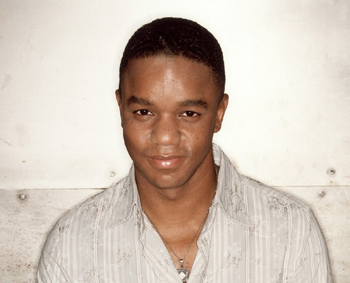![[Metroactive Music]](/gifs/music468.gif)
[ Music Index | North Bay | Metroactive Home | Archives ]
New Roar
Young jazz lions do it their way
By Greg Cahill
Remember the old young jazz lions? Those neoclassicists, headed by Wynton Marsalis, emerged in the mid-1980s garbed in stylishly tailored suits and possessing impeccable chops inspired by the jazz legends of the '30s, '40s, '50s and '60s. Marsalis especially mimicked the conservative stance of New Orleans trumpet master Louis Armstrong while penning compositions that resonated with a cosmopolitan Ellingtonia. Some of his peers turned to Miles Davis' blue balladry. Still others shaped their sound after the instrumental explorations of John Coltrane.
Their aesthetic came to dominate Ken Burns' multipart 2000 PBS-TV documentary Jazz, which leaned heavily on Marsalis' historical interpretations. But, as the old adage goes, familiarity breeds contempt. Critics complained that the young jazz lions were little more than preservationists who had freeze-dried a once vital art form.
Since then, Marsalis has lost considerable critical collateral. In the vacuum, a new generation of mostly young jazz players has risen to the front ranks, sometimes building on hard bop and other traditional forms, other times incorporating electric funk, electronica and other modern styles.
In recent weeks, four new jazz releases underscore this new wave of exciting young jazzers who are moving the music into the new millennium with a passion.
Trumpeter Dave Douglas' Strange Liberation (RCA/Bluebird)--which derives its title from Martin Luther King's statement that the Vietnamese must have viewed American soldiers as "strange liberators"--is the realization of a longtime dream to record with guitarist Bill Frisell, who brings a complex classicism to Douglas' dreamlike atmospherics. This new disc, one of Douglas' most accessible, marks a retreat from last year's Freak In (RCA/Bluebird), on which Douglas incorporated tape loops and electronic percussion. In its own way, Strange Liberation is musically more liberating.
Less well-known, but no less deserving of praise, is Polish trumpet player and bandleader Tomasz Stanko. At 60, Stanko hardly fits into the young jazz lions category, but his decade-long stint with the influential ECM label has introduced him to a wider U.S. audience of late. His band mates--pianist Marcin Wasilewski, bassist Slawomir Kurkiewicz and drummer Michal Miskiewicz--were still in their teens when they started working with Stanko in the mid-'90s.
Stanko's newly released Suspended Night is a suitably noirish affair, rife with muted trumpet and moody 4am piano ballads that are startlingly beautiful--sort of like Bill Evans meets the Legendary Pink Dots at a Miles Davis concert.
For those who want an introduction to Stanko's earlier work, ECM has just released a "best of" disc with tracks featuring Gary Peacock, Jan Garbarek, Dave Holland, Jack DeJohnette and other heavyweights. Also highly recommended is the Tomasz Stanko Quartet's sorely overlooked 2002 release Soul of Things (ECM), a 13-part suite that is one of the most evocative jazz compositions in recent memory.
A decade ago, saxophonist James Carter was hailed as the heir apparent to Wynton Marsalis, but Carter (a former Marsalis sideman and ex-member of Lester Bowie's avant-garde band) has proven capable of playing hard bop while steadfastly refusing to be pigeonholed, due in part to a talent for playing anyone's style without sounding like anyone else. Live at Baker's Keyboard Lounge, Carter's first album on the Warner label since jumping ship from Columbia, finds the saxophonist teaming up with several legendary Detroit players, including 88-year-old bebop pioneer pianist Franz Jackson and fellow saxophonists David Murray and Johnny Griffin.
This sizzling set--the most straight-ahead recording yet from a player whose work has run the gamut from a Django Reinhardt tribute to Miles-inspired jazz-funk to lush Billie Holiday covers--absolutely smokes. At every turn, Carter infuses this music with freshness and elevates even the loungy "Soul Street" to high art.
Meanwhile, one of the most adventurous new jazz releases is Evolution (Blue Note) from vibraphonist and percussionist Stefon Harris, arguably the single most exciting player to hit the jazz scene in the past few years. He emerged in 1998 from his role as a session man with Steve Turre and Charlie Hunter with the strong debut A Cloud of Red Dust, garnered a 1999 Grammy nomination and fostered collaborations with such fellow twenty-somethings as Jason Moran, Cassandra Wilson and Greg Osby, among others. Evolution is nothing short of revelatory.
Harris definitely has developed a sense of history about his border-breaking music. "The great thing about it is, it's sort of a movement that no one talked about," Harris recently told the St. Louis Dispatch. "It's not like musicians got together and said, 'Let's all try something.' It was just that, at this point in history, younger musicians have decided that we're tired of doing the other stuff, and we want to move on. And each of us is doing it in our own way."
[ North Bay | Metroactive Central | Archives ]
Copyright © Metro Publishing Inc. Maintained by Boulevards New Media.
![]()

Good Vibes: Percussionist Stefon Harris revitalizes jazz.
From the May 12-18, 2004 issue of the North Bay Bohemian.